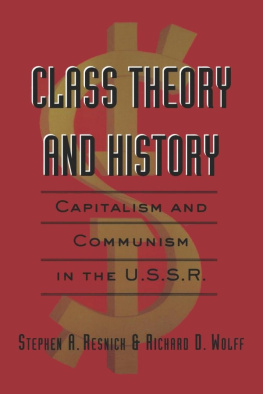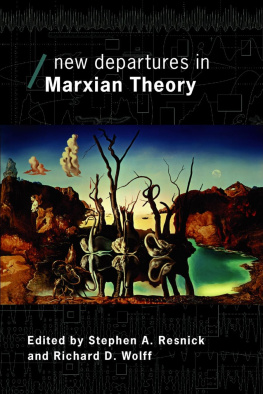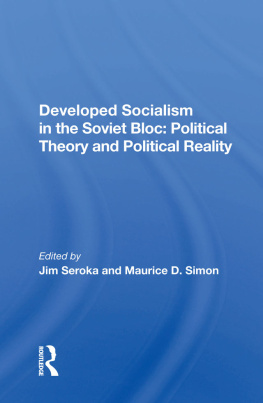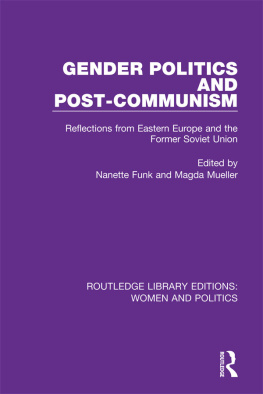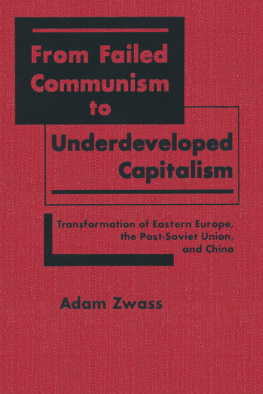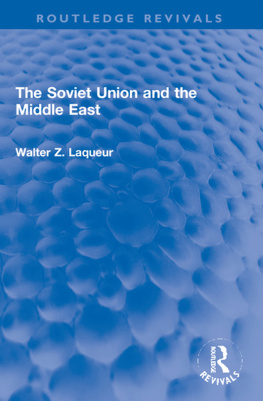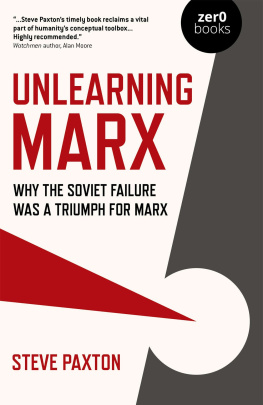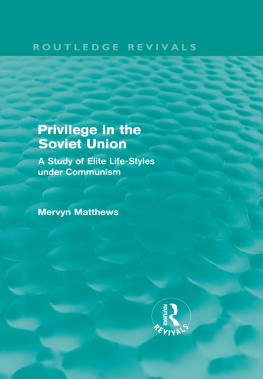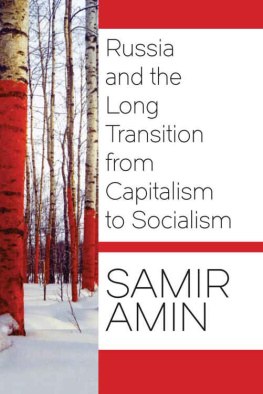Stephen A. Resnick - Class Theory and History: Capitalism and Communism in the USSR
Here you can read online Stephen A. Resnick - Class Theory and History: Capitalism and Communism in the USSR full text of the book (entire story) in english for free. Download pdf and epub, get meaning, cover and reviews about this ebook. year: 2002, publisher: Routledge, genre: Politics. Description of the work, (preface) as well as reviews are available. Best literature library LitArk.com created for fans of good reading and offers a wide selection of genres:
Romance novel
Science fiction
Adventure
Detective
Science
History
Home and family
Prose
Art
Politics
Computer
Non-fiction
Religion
Business
Children
Humor
Choose a favorite category and find really read worthwhile books. Enjoy immersion in the world of imagination, feel the emotions of the characters or learn something new for yourself, make an fascinating discovery.
- Book:Class Theory and History: Capitalism and Communism in the USSR
- Author:
- Publisher:Routledge
- Genre:
- Year:2002
- Rating:4 / 5
- Favourites:Add to favourites
- Your mark:
Class Theory and History: Capitalism and Communism in the USSR: summary, description and annotation
We offer to read an annotation, description, summary or preface (depends on what the author of the book "Class Theory and History: Capitalism and Communism in the USSR" wrote himself). If you haven't found the necessary information about the book — write in the comments, we will try to find it.
A ground-breaking look at the entire history of the Soviet Union, examining its birth, evolution, and death in class terms, which formulates the most fully developed economic theory of communism now available.
A very ambitious and interesting book on a very important topic. -- Howard Sherman, author of Reinventing Marxism
Using a version of Marxs theory of class to explain the rise and fall of the Soviet Union, and the Soviet Union as evidence for the validity of this theory, Resnick and Wolff succeed in providing us with an original and fascinating account of both. Whether one agrees or disagrees with their results, no future work on either of these important subjects will be able to ignore the sheer creative verve and intellectual rigor with which they lay out their arguments. Very highly recommended. -- Bertell Ollman, editor of Market Socialism: The DebateAmong Socialists
A stunning achievement! Resnick and Wolff have extended their path breaking work in Knowledge and Class to a full-fledged class analysis of the rise and fall of the Soviet Union. Building on the clearest analysis of class in the Marxian tradition, Resnick and Wolff provide a comprehensive analysis of the core contradictions in pre-Soviet Russia and the Soviet Union. This is a work that all those concerned with the Soviet experience, the nature of class, and the possibilities of fundamental social change will have to contend with. -- Victor D. Lippit, editor of Radical Political Economy: Explorationsin Alternative Economic Analysis
Class Theory and History both follows in the best Marxian traditions footsteps and develops new important insights. Building upon a notion of class whose pivot is the production and distribution of surplus, the authors offer a stimulating and original interpretation of the USSRs birth, development, and fall. This is class analysis at its best, a work which deserves the widest circulation. -- Guglielmo Carchedi author of For AnotherEurope: A Class Analysis of European Economic Integration
Stephen Resnick and Richard Wolff, both economics professors, approach Soviet history on a highly theoretical level, analyzing the productive relations in Soviet society with sometimes mathematical (or, perhaps, pseudomathematical) precision...[A] strikingly original argument. -- Humanities and Social Sciences Online
Stephen Resnick (October 24, 1938 January 2, 2013) was an American heterodox economist. Much of his work, co-written with Richard D. Wolff, was on Marxian economics, economic methodology, and class analysis. His work is informe by a post-Marxist and post-Althusserian perspective on political economy. His works include New Departures in Marxian Theory: Economics as Social Theory (Routledge, NY, 2006).
Richard Wolff is an American Marxian economist, known for his work on economic methodology and class analysis. He is Professor Emeritus of Economics at the University of Massachusetts Amherst, and currently a Visiting Professor in the Graduate Program in International Affairs of the New School in New York. He co-founded the journal Rethinking Marxism. He has published many works including Capitalism Hits the Fan: The Global Economic Meltdown and What to Do About It (Interlink 2010), Occupy the Economy: Challenging Capitalism (City Lights Books, 2010), Contending Economic Theories: Neoclassical, Keynesian, and Marxian, with Stephen Resnick (MIT University Press, 2010), and Democracy at Work (Haymarket Books, 2010).
Stephen A. Resnick: author's other books
Who wrote Class Theory and History: Capitalism and Communism in the USSR? Find out the surname, the name of the author of the book and a list of all author's works by series.

